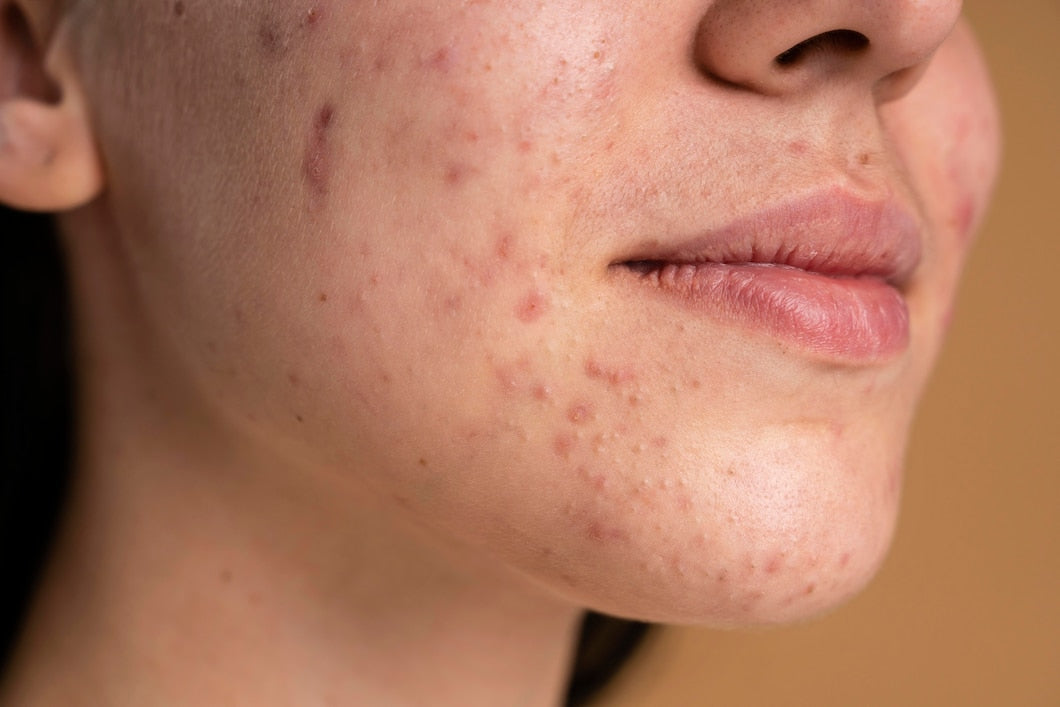
How to Treat Acne: Effective Skincare Tips & Treatments That Actually Work
Acne is one of the most common skin concerns worldwide, affecting teenagers and adults alike. Whether it shows up as blackheads, whiteheads, pimples, or deep cysts, acne can be frustrating and sometimes even painful. The good news is—acne is treatable. With the right skincare practices, lifestyle adjustments, and (when needed) medical help, you can achieve clearer, healthier skin.
This guide will help you understand the causes of acne, the different treatment options available, and how to prevent future breakouts.
What Causes Acne?
Acne occurs when pores get clogged with oil, dead skin cells, and bacteria. Several factors can contribute:
-
Excess sebum (oil) production
-
Clogged hair follicles
-
Bacteria buildup (Cutibacterium acnes)
-
Hormonal changes (puberty, menstrual cycles, pregnancy)
-
Diet and lifestyle factors
-
Stress
Types of Acne
-
Blackheads – open clogged pores
-
Whiteheads – closed clogged pores
-
Papules – small, red bumps
-
Pustules – pimples with pus
-
Nodules – painful, hard lumps under the skin
-
Cysts – large, pus-filled lumps (severe acne)
How to Treat Acne: Effective Remedies
1. Gentle Skincare Routine
-
Cleanser: Use a mild, non-comedogenic cleanser twice daily. Avoid harsh scrubbing.
-
Moisturizer: Even oily skin needs hydration—choose oil-free, lightweight formulas.
-
Sunscreen: Protects skin and prevents dark spots after acne heals.
2. Over-the-Counter Treatments
-
Salicylic Acid – unclogs pores, reduces oil buildup.
-
Benzoyl Peroxide – kills acne-causing bacteria.
-
Retinoids (Adapalene) – speeds up cell turnover, prevents clogged pores.
-
Sulfur or Clay Masks – helps absorb oil and reduce inflammation.
3. Home Remedies (Mild Acne)
-
Green Tea Extracts – soothing and antibacterial.
-
Honey & Aloe Vera – reduces redness and calms skin.
-
Ice Compress – reduces swelling and pain from inflamed pimples.
(Note: Home remedies may help mild acne but are not substitutes for proven treatments.)
4. Professional Treatments
For moderate to severe acne, dermatologists may recommend:
-
Prescription Retinoids (stronger than OTC versions).
-
Oral/Topical Antibiotics – to reduce bacteria and inflammation.
-
Hormonal Treatments (birth control pills, spironolactone) – especially effective for women with hormonal acne.
-
Chemical Peels – exfoliate and renew skin.
-
Laser or Light Therapy – targets bacteria and reduces oil production.
5. Lifestyle Changes
-
Balanced Diet: Reduce intake of high-sugar and high-dairy foods (which may trigger acne in some people).
-
Stay Hydrated: Keeps skin balanced.
-
Manage Stress: Yoga, meditation, or regular exercise.
-
Don’t Touch Your Face: Prevents bacteria transfer.
-
Change Pillowcases Often: Keeps skin cleaner and reduces breakouts.

What NOT to Do
-
Don’t pop or squeeze pimples—it can worsen inflammation and cause scars.
-
Don’t over-exfoliate—this damages the skin barrier.
-
Don’t skip moisturizer—dry skin can trigger more oil production.
-
Don’t expect overnight results—acne treatments often take 6–8 weeks.
When to See a Dermatologist?
Seek professional help if:
-
Your acne is painful, cystic, or widespread.
-
OTC products don’t work after 2–3 months.
-
You develop scars or dark spots.
-
Acne impacts your confidence and daily life.
Conclusion
Acne can be tough to deal with, but with patience and the right treatments, you can regain control of your skin. Start with a gentle skincare routine, introduce targeted treatments slowly, and seek professional help when needed. Remember—clear skin is a journey, not an overnight fix.